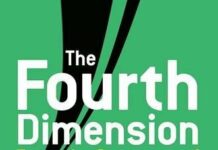
Ebook Info
- Published: 2019
- Number of pages: 376 pages
- Format: PDF
- File Size: 27.42 MB
- Authors: Rudy Rucker
Description
A dynamic exploration of infinityIn Infinity and the Mind, Rudy Rucker leads an excursion to that stretch of the universe he calls the “Mindscape,” where he explores infinity in all its forms: potential and actual, mathematical and physical, theological and mundane. Using cartoons, puzzles, and quotations to enliven his text, Rucker acquaints us with staggeringly advanced levels of infinity, delves into the depths beneath daily awareness, and explains Kurt Gödel’s belief in the possibility of robot consciousness. In the realm of infinity, mathematics, science, and logic merge with the fantastic. By closely examining the paradoxes that arise, we gain profound insights into the human mind, its powers, and its limitations. This Princeton Science Library edition includes a new preface by the author.
User’s Reviews
Reviews from Amazon users which were colected at the time this book was published on the website:
⭐Food for thoughtClear and well organized
⭐Good explanation of the concept of Infinity and the mathematics involved, including the work of Godel, Einstein, and Turing, and a host of others from the Vienna Circle, between the wars.
⭐Where to begin? This is “Gödel, Escher, Bach” for actual math people. You might call it instructions for a precise mysticism, though that barely touches what it really gets into.
⭐I found most of the reviews on this book to be spot on. If you have an interest in infinity and a fairly good understanding of basic college level mathematics, you can get a lot out of it. I don’t believe it is as accessible as most popular science books but the subject is a deep one and its hard to consider it properly without going deep into some tedious thought processes. I think I would have enjoyed this book more if the author spent more time talking about the philosophical implications of the mathematics and how the mind reacts to the idea on infinity.
⭐I won’t comment on the content of the book, but I would like to comment on the Kindle edition that I bought. Some figures are hard to read, and there are several typographical errors, such as mathematical symbols missing (for example the expression (s=t & t=r) -> s=r on page 272, is just (s=t & t=r) s=r in the Kindle edition. One place, a 1 is replaced by ], and one place the lemniscate – quite an important symbol in a book on inifinity – is replaced to separate circles (the ones used for degrees). These were even split across lines. Some = have been converted to :. It seems as the kindle edition is made from scanning and OCRing the print edition, without proofreading. The errors are not so numerous or hard to spot that it made the book significantly harder to read, but they are an annoyance. I would recommend the print edition.With technical books containing many formulas and figures, the kindle preview should always contain some sections with such elements.
⭐The book is as described.
⭐A gift — the recipient was delighted.
⭐I’ve always been facinated with the concept of infinity. Having been a math minor I figured the math wouldn’t be all that bad; however, after the first 100 pages, the book became ‘Infinitly Bored out of my Mind’. Anyone without a PhD in math, looking for a philosophical read on infinity and infinity paradox, can safely skip this book.Pro – It has a pretty coverCon – Anything beyond the cover
⭐very good
⭐Rucker does a good job in Chapters 2, 3 & 5, on transfinite numbers, paradoxes, the one/many problem, truth, nameability… And in exploring the many routes towards the unattainable/inconceivable absolute…His treatment of transfinite & large cardinals, in Excursion 1, is more complete than Stillwell’s.His treatment of Gödel’s incompleteness theorems, in Excursion 2, is more detailed but totally unstructured as compared to Stillwell’s exposition (via Emil Post’s & Gentzen’s discoveries…).BUT, but, if you haven’t been exposed to books such as Smullyan’s, Stillwell’s on various topics such as sets, ordinals, cardinals, ZFC, NBG, class/set differences, finite/transfinite induction & recursion, foundation, rank, constructible sets, independence of the continuum hypothesis… then Rucker’s skimming over those concepts will appear confusing.As for the philosophy side, Rucker’s book is packed with interesting details and it would have taken a Hofstadter to structure the whole lot, into what could have become a fascinating exposition… Alas, not everyone is a Hofstadter .Finally, concerning presentation and readability : sections are not numbered, let alone paragraphs which are overpacked ; figures are “thrown” in the text, unrelated ; proofs are half achieved, are not even stated as proofs ; conclusions are loosely tied to proofs and theorems, when they are…If that’s how Rucker teaches, then I feel really sorry for his students !
⭐The current release with the additional prefaces is worthwhile in comparison to the original. This book is a good starting point for the uninitiated into the work of Godel or Woodin.
⭐Great
⭐I was a little concerned when ‘Infinity’ arrived looking like an old maths books; unfortunately it reads like one too. It’s all very dry and Rucker lasts about five pages before assaulting us with equations in the middle of the text, with no introduction and incomplete keys to explain all the variables. This is quickly followed by some patronising statements about simple maths, i started to question if Rucker knew who he was targetting this book at. Not a good start.Following this up with some sweeping generalisations about the big bang and relatively, cherry picking the concepts which suit his cause and side-stepping proper explanations with statements along the lines of, ‘I don’t have time to justify my beliefs, so just believe them.’ If i wanted that attitude I’d go to church thanks. This is a weak composition of ideas based on flawed logic, massive assumptions and out-dated ideas such as: There’s no mention of the Planck length, or the fact that the rate of expansion of the universe is accelerating, (which makes his musings on the concept of a closed universe moot). Rucker appears – to me – to sit on the fence on too many theories, making me believe he’s unsure himself.It’s less about infinity and the mind, more about finding flaws in our language and maths, creating paradoxes that only serve to point out the weaknesses inherent to these systems. There’s also far too much algebra that breaks up what little flow there is, without serving much purpose and it reads like a mathmaticians diary of the world, which is not interesting. The philosophy (and there’s a lot) is circular, unprovable and i disagreed with most of it. The end of chapter questions did not stimulate thought, i could answer them immediately, and they are for the most part, ridiculous. And don’t even get me started on ‘cardinal’ numbers; no matter how vast they may seem, if you can write it down – let alone imagine it – it’s not infinite, okay? The only question it made me ponder was; if this book is boring now and my opinion didn’t change, no matter how many times i re-read it, is it infinitely boring? I think so.
Keywords
Free Download Infinity and the Mind: The Science and Philosophy of the Infinite (Princeton Science Library Book 86) in PDF format
Infinity and the Mind: The Science and Philosophy of the Infinite (Princeton Science Library Book 86) PDF Free Download
Download Infinity and the Mind: The Science and Philosophy of the Infinite (Princeton Science Library Book 86) 2019 PDF Free
Infinity and the Mind: The Science and Philosophy of the Infinite (Princeton Science Library Book 86) 2019 PDF Free Download
Download Infinity and the Mind: The Science and Philosophy of the Infinite (Princeton Science Library Book 86) PDF
Free Download Ebook Infinity and the Mind: The Science and Philosophy of the Infinite (Princeton Science Library Book 86)



